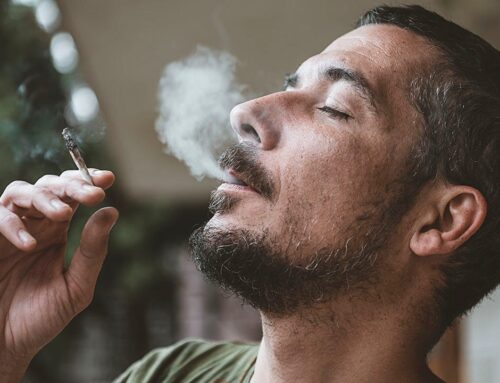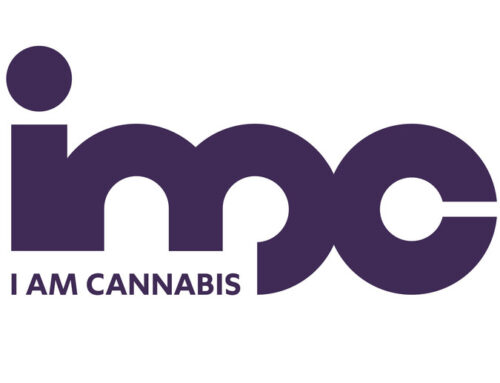New Virginia Cannabis Commission Meeting Next Week Will Help Shape Recreational Marijuana
July 1, 2025
A newly reformed government cannabis commission in Virginia will meet next week to discuss the future of marijuana law in the commonwealth—a process widely expected to result in a revised proposal to legalize retail sales of the drug.
Convened as part of a House joint resolution passed by lawmakers earlier this year, the group is set to spend the coming months gathering public input and making recommendations on an array of policy matters around Virginia’s would-be transition into a full-fledged adult-use commercial cannabis market. Those include fundamentals like licensing and tax details along with related issues such as paraphernalia, employment protections and labor union agreements.
Use and possession of marijuana has been legal in Virginia since 2022, but retail sales remain forbidden—a situation that’s helped fuel a multibillion-dollar illicit market. Despite efforts by Democrats in past years to legalize and regulate the retail system, Gov. Glenn Youngkin (R) has stood in the way of the reform, twice vetoing proposals passed by lawmakers.
“There’s kind of a good-news, bad-news with retail cannabis legalization in Virginia,” Del. Paul Krizek (D), who sponsored the resolution creating the new body—formally called the Joint Commission to Oversee the Transition of the Commonwealth into a Retail Cannabis Market—told Marijuana Moment in a recent interview.
The bad news, he said, is that lawmaker infighting over whether and how to regulate marijuana has meant “we’re unable to provide Virginians with a tested, well regulated retail market” even years after possession became legal.
“The good news is it’s given us a little bit of time to work on perfecting this legislation that we’re going to bring back next session,” he continued. “It’s also given us the time to…get more input from the public and from the stakeholders, and to really move cannabis from the street corner to behind an age-verified retail counter.”
In the short-term, Krizek and others say the commission’s conversation will inform an updated bill to introduce in the coming year. With Youngkin term-limited and unable to run for re-election in November, his replacement is likely to decide whether regulated products will become available in the commonwealth in the next few years.
Whatever happens, the body is scheduled to remain in place until mid-2028, which the lawmaker said will allow members to keep at the work—whether that means continuing to explore the possibility of retail sales or monitoring a fledgling commercial system as gets off the ground.
The commission created by Krizek’s bill, HJ 497, consists of six lawmakers from the House and four from the Senate. A similar commission previously existed in the commonwealth, but the law creating that body sunsetted last year and the group disbanded.
Most business at the commission’s first meeting, on July 9, will be housekeeping: things like setting agendas and ground rules for meetings, electing officers—Krizek said he hopes to be selected as chair, with Sen. Adam Ebbin (D) as vice chair—and laying out expectations for process ahead.
From there, he emphasized, the bulk of the commission’s work will involve hearing from stakeholders and the public.
“This is all about a public process with public input, not just stakeholders, but the public in general,” Krizek told Marijuana Moment. “One of the goals, I’m certain, will be to get as much public information [as possible], especially from our stakeholders.”
He said he intends to use the recent legal sales bill that was vetoed by Youngkin as a starting point “with a few small tweaks” but also pointed to other issues he hoped the commission would take up, such as expanding cannabis-related employment protections to include non-medical marijuana use by adults, evaluating proposed tax rates on paraphernalia and adding provisions around labor union organizing.
Asked whether the matters would be part of a comprehensive sales bill or dealt with on a more piecemeal basis, the lawmaker emphasized that the committee’s focus for now is on understanding policy issues rather than strategizing how to pass legislation.
“You have to tackle it policy first, and you worry about the tactics as you go,” he said.
Among the organizations expected to participate in the commission process are Marijuana Justice and NORML, which both appeared before the previous iteration of the body.
Chelsea Higgs Wise, executive director of Marijuana Justice, said she’s “excited about the opportunity for public comment and expert testimony,” calling the commission “an opportunity for a melding of the minds.”
“These legislators, many of them are new to the cannabis industry, and so this is an opportunity for them to learn best practices, hear from trusted advocates and organizers and invite in the experts…to make smart decisions,” she said.
“The majority of them have a history of standing on justice, equity and being open to learning how cannabis can really benefit Virginia,” she added of the commission’s members. “I am very excited for this commission to hear and craft the future of Virginia cannabis.”
Among the priorities Marijuana Justice has for the conversation is a review of micro business eligibility provisions, which Higgs Wise said could be too wide in scope, as well as how adult-use cannabis operators could effectively compete with large, existing medical marijuana companies.
“Centering corporations, centering big cannabis, is not necessarily what’s best for a Virginia-based industry,” she said. “We really want to have in-depth conversations about the start date of sales and what that will mean for people that are just getting started, versus those that are already operational either with hemp or with medical cannabis.”
JM Pedini, development director for the advocacy group NORML and executive director for Virginia NORML, told Marijuana Moment that the commission “has consistently provided an excellent opportunity for both lawmakers and members of the public to participate in cannabis policy discussions before the legislative session begins” and encouraged interested members of the public to attend the panel’s meetings.
But Pedini also stressed the importance of getting out the vote later this year, especially in the governor’s race.
“Ultimately, it is the outcome of this November’s election that will determine the fate of cannabis retail in Virginia,” they said. “There are only two choices. Voters can either elect a governor who will sign a retail sales measure, or one who will double down on prohibitionists’ attempts to roll back cannabis freedoms in the commonwealth.”
One advocacy group not planning to engage with the new commission is the Virginia Cannabis Association (VCA).
“To be quite frank, we’re not going to participate in any of these meetings,” said Jason Blanchette, the organization’s president. “I don’t really know what’s going to come out of it.”
“I’m not really looking to get involved in that at all,” he continued of the commission’s work, explaining that VCA is focused on reintroducing the same bill that lawmakers sent to Youngkin in the past two years.
“We are going to push like heck the bill that we have already spent an enormous amount of time getting it to the finish line,” Blanchette said. “The hope is to pass this thing in January so they don’t have to keep monkeying around here.”
He also doubted the makeup of the panel, saying that “six delegates and four senators is not the way to do it.” He’d rather see members of the cannabis industry represented on the body itself.
“I think it’s going to be mandatory for them to have a medical operator representative. It’s going to be mandatory to have a grower-farmer representative. It’s going to be mandatory to have a retail representative,” he said. “Public input…versus having a seat at the table are two totally different things.”
Blanchette said he’s nevertheless bullish on the chances for reform, predicting that after November’s election, Democrats will control not only the governor’s office but also both the Senate and the House of Delegates.
“They more than likely are going to have a trifecta,” Blanchette said of the party. “And that’s what makes 2026 the year this has to pass.”
—
Marijuana Moment is tracking hundreds of cannabis, psychedelics and drug policy bills in state legislatures and Congress this year. Patreon supporters pledging at least $25/month get access to our interactive maps, charts and hearing calendar so they don’t miss any developments.
Learn more about our marijuana bill tracker and become a supporter on Patreon to get access.
—
Advocates like Pedini have pointed out that if the next governor isn’t open to legalizing retail sales, that could set back the effort until 2030 or later.
It could also affect more incremental reforms. For example, in May Youngkin vetoed a bill that would have allowed deliveries of medical marijuana directly to patients at locations other than their own homes. It would have also updated product labeling requirements so packaging would more clearly indicate THC and CBD levels.
In March, after the legislature passed the legislation, Youngkin recommended an amendment that would remove language to allow marijuana to be delivered to places other than a patient’s private residence. Lawmakers later declined to make that change, however, and sent the unamended bill back to the governor.
The proposal had strong support in both chambers, passing the Senate on a 30–10 vote and winning final approval in the House on an 84–14 margin. But Youngkin nevertheless rejected it.
“While accurate labeling is essential to ensure patients receive consistent and safe medical cannabis,” he wrote in a veto message, “this bill would codify the ability to deliver medical cannabis to commercial businesses and temporary residences, raising public safety and regulatory concerns. Permitting deliveries to businesses—including locations where substance abuse, gambling, or other high-risk activities may occur—creates unnecessary risks for diversion, theft, and unintended access by minors.”
Pedini at NORML described the veto at the time as “yet another example of the attacks on legal cannabis and responsible consumers that are underway across the nation.”
Youngkin in March also vetoed a host of other drug reform proposals passed by lawmakers, including the legal sales bill and another to authorize the prescription of a synthetic form of psilocybin as soon as the federal government authorizes its use.
Beyond the legal sales and psilocybin bills, the governor also rejected a number of other cannabis-related reforms this session, including efforts to resentence people serving time for cannabis offenses and protect the parental rights of those who legally use the drug.
Youngkin agued in a veto statement that legalizing sales of adult-use marijuana “endangers Virginians’ health and safety.”
“States following this path have seen adverse effects on children’s and adolescents’ health and safety, increased gang activity and violent crime, significant deterioration in mental health, decreased road safety, and significant costs associated with retail marijuana that far exceed tax revenue,” the governor claimed. “It also does not eliminate the illegal black-market sale of cannabis, nor guarantee product safety.”
Even before the start of the current legislative session, Youngkin’s office had signaled it had no interest in the reform.
Asked by Virginia Public Media (VPM) late last year about the likelihood of a veto, Christian Martinez, a spokesperson for the Youngkin, told the outlet: “I think you can cite the fact that time and time again he has been very clear on that.”
Reform advocates are already watching to see where his possible replacements stand on legalization and other cannabis policy changes.
Two frontrunners for the position—Republican Lt. Gov. Winsome Earle-Sears and Democratic former U.S. Rep. Abigail Spanberger—have starkly different views on the reform.
Earle-Sears recently echoed Youngkin’s views, saying of legalization: “There’s no hope in that.”
She’s also said marijuana is a gateway drug and that she fired a previous employee for using it.
Spanberger, meanwhile, voiced support for a regulated retail market.
“We need a formalized, legal, emerging cannabis market,” she said. “We also need to make sure that [tax] revenues flow into Virginia and are used to strengthen our communities and public schools.”
Ebbin, the senator who is expected to become vice chair of the new commission, suggested that the outcome of the election will determine the future of cannabis policy in Virginia.
“I think we will finally see regulated sales after the 2026 legislative session,” he told Marijuana Moment, “assuming a pro-regulated market candidate, like Abigail Spanberger, is elected governor.”
Photo courtesy of Mike Latimer.
Search
RECENT PRESS RELEASES
Related Post





